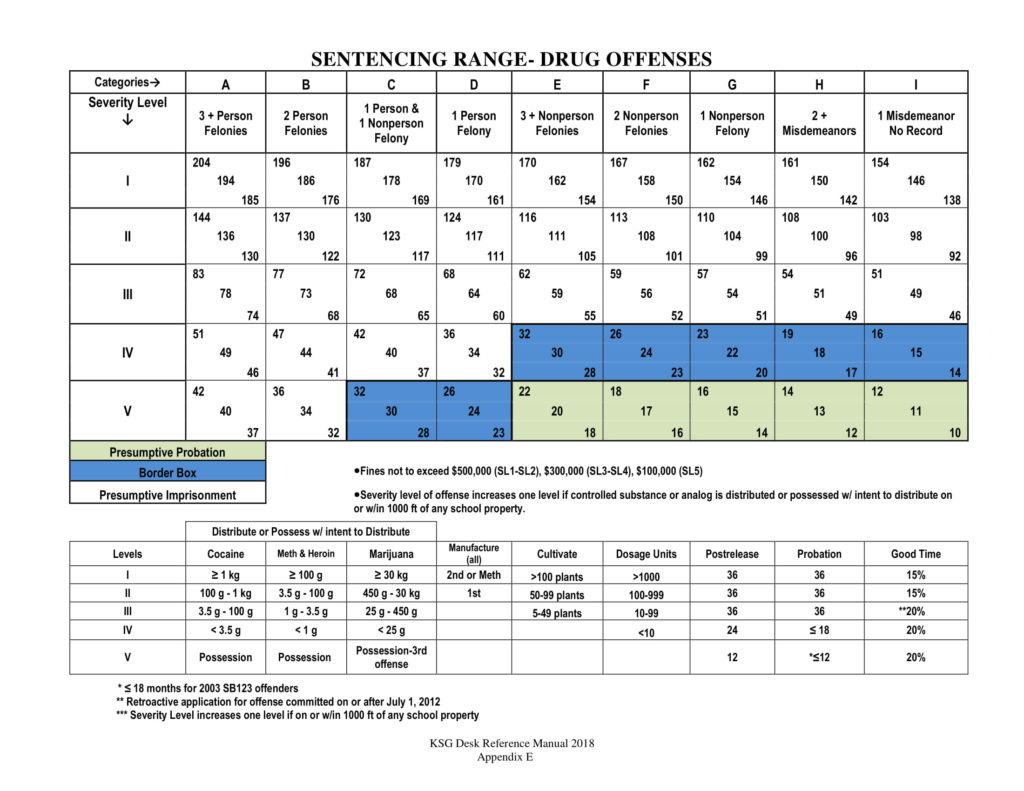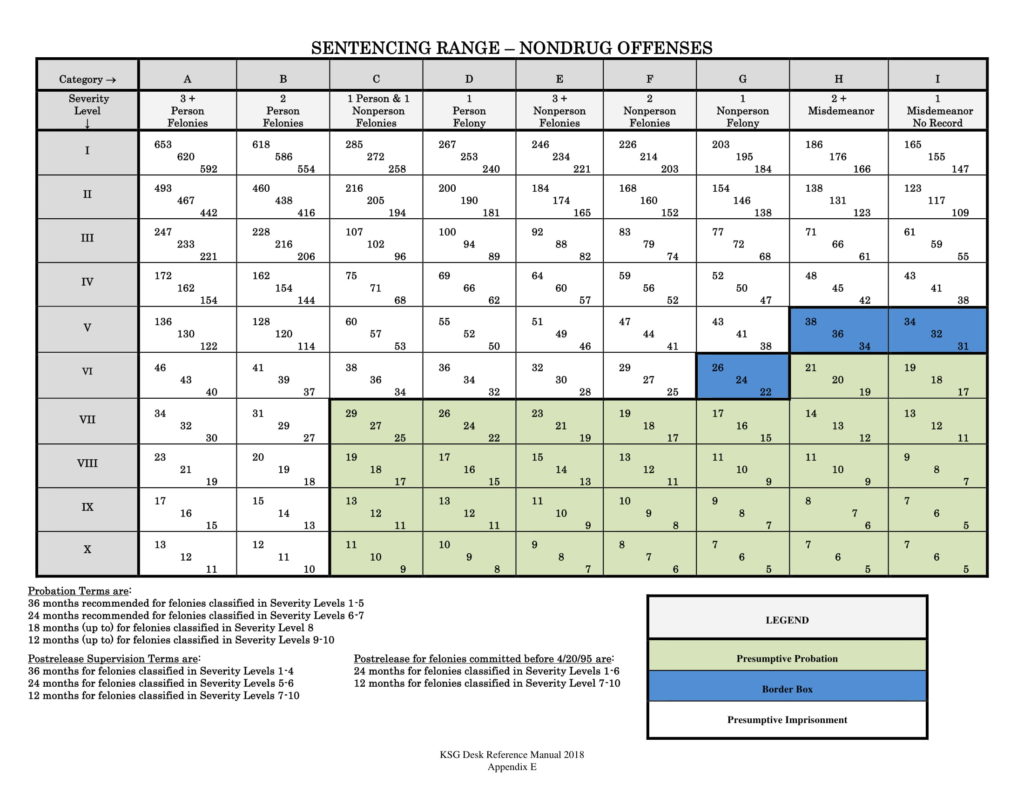Misdemeanor and Felony Sentencing
Don’t Leave Your Sentencing Up to Chance. Contact an Experienced Johnson County Felony Lawyer
Understanding the criminal justice system is complex task, especially when you face the stress of an arrest. Trying to decipher your potential punishment for a felony crime makes things even more difficult. All you truly need to know, however, is that a skilled Johnson County felony lawyer will present your best defense.
Misdemeanor and Felony Sentencing in Kansas
The first thing to know about sentencing options is that sentencing only occurs after there is a finding of guilt. A court can order bond conditions prior to a guilty finding, but a judge can only sentence a person after they have either pled guilty or have been found guilty beyond a reasonable doubt after a trial by a judge or jury.
After the guilty finding, the law gives a judge many options. These options depend on whether the crime is a misdemeanor or felony and the classification of the crime. Misdemeanors are classified as either Class A, Class B or Class C misdemeanors. Felonies are classified based on their severity level which ranges from 1 to 9.
Misdemeanor Sentencing Options
Judges have an extremely wide range of discretion in misdemeanor sentencing. The judge may impose a fine, probation conditions, jail time or a combination. The maximum punishment for each classification of misdemeanor are:
Class A: Jail time: up to 12 months
Probation length: up to 24 months (12 months is standard)
Fine: up to $1,000.00
Class B: Jail time: up to 6 months
Probation length: up to 24 months (12 months is standard)
Fine: up to $1,000.00
Class C: Jail time: up to 30 days
Probation length: up to 24 months (12 months is standard)
Fine: up to $500.00
If a judge orders probation, there will usually be conditions such as reporting to a probation officer and specific treatment related to the offense. For example, in a battery case the judge would likely order anger management and in a drug case the judge would likely order substance abuse treatment.
A Johnson County Felony Lawyer Explains How the Kansas Sentencing Grid Works
Kansas uses the Kansas Sentencing Grid to serve as guidelines to establish presumptive sentences. There are two grids; one for drug crimes and one for nondrug crimes but they operate in the same way.


The axis on the left side of the grid lists the severity level of the felony charge. The axis on the top of the grid lists the criminal history of the defendant. To determine the presumptive sentence you simply find the box where the relevant column and row intersect. For example, if a defendant has 1 nonperson felony on his record and is being sentenced for a severity level 4 felony the column and the row meet at a box containing the numbers 47, 50 and 52. This means that the presumptive sentence is 50 months in prison and the judge can impose any sentence between 47 and 52 months.
Boxes are shaded differently to determine whether a crime should result in a prison sentence or probation. If the relevant sentencing box is presumptive for probation, the judge will still give a specific prison sentence from the box but that prison sentence will be stayed (or paused) while the defendant completes probation. If the defendant violates probation, the judge may impose the prison sentence previously issued.
Departures
The Kansas Sentencing Grid gives presumptions and guidelines that the court must follow unless the judge makes certain findings at a sentencing hearing. A dispositional departure occurs when a judge imposes a prison or probation sentence even though the sentencing box tells the court the opposite is presumed. A durational departure occurs when a judge imposes a prison sentence which is outside the range listed in the relevant sentencing grid box.
In order to depart, the judge must make a specific finding that substantial and compelling conditions exist to justify the departure. Departures can be made in favor of the defendant or against the defendant. For this reason in particular, it’s especially important to contact an experienced Johnson County felony lawyer.
Special Rules
Special rules exist in certain situations that allow a judge to impose a sentence outside of the guidelines without the judge making a substantial and compelling conditions finding that a departure requires. For example, any crime committed with a firearm becomes a presumptive imprisonment case even if the defendant’s placement on the sentencing grid would be presumptive probation. There are also special rules which are implicated if a defendant commits a felony while already on bond or probation for a previous felony.
Although not technically special rules, homicides and certain sexual offenses committed against a child under the age 14 are handled outside of the Kansas Sentencing Grid and carry their own sentencing guidelines and considerations. There are often referred to as Off Grid crimes.
Contact Jerry Merrill, a Top Johnson County Felony Lawyer
If you are facing criminal charges and need answers to your questions regarding what might happen at sentencing please do not hesitate to give me a call or complete our online form. We serve clients throughout Kansas, including Olathe, Overland Park and Shawnee.

